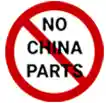Aviation is a demanding industry where safety and regulatory compliance are non-negotiable. One often overlooked aspect is the placement of placards that clearly communicate essential information for both crew and passengers. From cockpit labels to cabin signs indicating emergency exits, these visual markers help maintain order and enhance situational awareness, so read on as we provide more insight into the importance and requirements for placards in aviation.
A placards is a visual notification or label that provides critical information through text, symbols, or pictures. In the context of aircraft, placards are strategically placed throughout the cockpit, cabin, and exterior to communicate essential warnings, operational instructions, or identification details. These markings help ensure compliance with aviation regulations and enhance safety by clearly conveying information related to equipment operation, emergency procedures, weight limits, restricted areas, and more.
Placards serve a variety of critical functions within the aerospace environment. They are indispensable tools for conveying essential information to crew, maintenance personnel, and passengers. Some of the most notable placard types include:
Aircraft safety regulations mandate the use of specific placards. These regulations are designed to ensure safety, clarity, and standardization, which is why compliance is absolutely necessary.
The Federal Aviation Administration (FAA) sets forth many strict guidelines regarding placards that cover design, placement, and content. For instance, 14 CFR Part 25.1557 details specific requirements for markings and placards in transport category airplanes, including stipulations for size and location. FAA Advisory Circular AC 45-4 further clarifies acceptable methods for marking aircraft from letter size to color contrast, including specific color schemes to denote hazardous areas.
International aviation organizations, like the International Civil Aviation Organization (ICAO), also establish standards for placards to promote consistency and safety across international borders. While ICAO sets the overall framework, individual countries often incorporate these standards into their own regulations. For example, regulations might specify that certain placards, like those related to emergency exits, must be in both English and the language of the country of operation.
Regular inspections are crucial for verifying placard compliance. Placards should be checked for legibility, accuracy, and proper placement. Factors like fading, damage, or incorrect positioning can render a placard ineffective, and they should be replaced immediately.
Failure to use appropriate placards can have serious consequences, such as regulatory fines, aircraft grounding, and safety hazards as a result of mishandling. For example, an improperly marked fuel tank could lead to incorrect fueling, potentially causing catastrophic engine failure.
For professionals seeking a convenient purchasing platform, Buy Jet Engine Parts offers a comprehensive database for all your aviation needs. We stock a wide range of parts, including placards like part number NPB1435-9BC. With this in mind, we invite you to explore our website and request a quote on part number NPB1435-9BC to experience our unrivaled procurement options.
Posted on March 3, 2025 sophia anderson



“We Proudly Support Intrepid Fallen Heroes Fund that serves United States Military Personal experiencing the Invisible Wounds of War : Traumatic Brain Injury (TBI) and Post Traumatic Stress (PTS). Please visit website (www.fallenheroesfund.org) and help in their valiant effort”.
We Hope that You Will Visit Us Again the Next Time You Need Aircraft Parts and Make Us Your Strategic Purchasing Partner.
Request for Quote